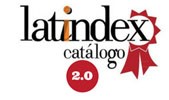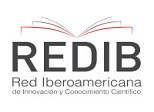The Application of Semi-structured Interviews in Different Modalities During the Context of the Pandemic
DOI:
https://doi.org/10.69890/hallazgos21.v7i1.556Keywords:
semi-structured interview, science of science, ethics of scienceAbstract
Part of the methodological design of any qualitative research may vary during the research process. In this case study, the critical reflection on the methodological decision to modify the way of applying certain interviews under the context of pandemic (2020- first academic semester) is proposed.
The interview is a powerful tool to obtain descriptions of the world lived by the interviewees. The possibility of grasping, understanding and interpreting the experience of the participating subjects from their own perspective emerges from the approach of the interviewer and the interviewee. Both are generating interactions loaded with meanings. What would happen if a semi-structured interview script of the semi-standardized type, created to be applied in person, were to be applied in this way to one part of the sample and to another to be applied in a virtual way? Would it be lost in the interviewee’s ability to express himself? Would the interviewer be less able to capture non-verbal communication? Would the interviewee feel more, less, or equally strange in the interview process?
The situation raised in questions occurred, revealing epistemological, methodological and ethical concerns that are progressively explained.
References
Álvarez, C. (2008). La etnografía como modelo de investigación en educación. https://www.ugr.es/~pwlac/G24_10Carmen_Alvarez_Alvarez.html
Fernández, R. (2001). La entrevista en la investigación cualitativa. Revista Pensamiento Actual, 2(3). https://revistas.ucr.ac.cr/index.php/pensamiento-actual/article/view/8017
Flick, U. (2007). Introducción a la Investigación Cualitativa (2da ed.). Madrid, España: Morata.
Flick, U. (2012). Introducción a la investigación cualitativa. Madrid, España: Morata.
Gibbs, G. (2012). El análisis de datos cualitativos en investigación cualitativa. Madrid, España: Morata
Kvale, S. (2011). La entrevista cualitativa. Madrid, España: Morata.
Martínez, V. (2013). Paradigmas de investigación. Manual multimedia para el desarrollo de trabajos de investigación. Una investigación desde la epistemología dialéctico-crítica. http://biblioteca.udgvirtual.udg.mx/jspui/handle/123456789/3790
McMillan, J. H., & Schumacher, S. (2005). Investigación educativa. Madrid: Pearson.
Merlinsky, G. (2006). La Entrevista como Forma de Conocimiento y como Texto Negociado: Notas para una pedagogía de la investigación. Cinta Moebio, 27, 7-33. http://www.facso.uchile.cl/publicaciones/moebio/27/merlinsky.pdf
Simons, H. (2011). El estudio de caso: Teoría y práctica. Madrid: Morata.
Valles, M. (1999). Técnicas Cualitativas de Investigación Social. Reflexión Metodológica y práctica profesional. Madrid: Síntesis, S.A.
Vasilachis de Gialdino, I. (2009). Los fundamentos ontológicos y epistemológicos de la investigación cualitativa. Forum Qualitative Sozialforschung, 10(2). https://www.qualitative-research.net/index.php/fqs/article/view/1299/2778
Published
How to Cite
Issue
Section
License
Los artículos enviados a la Revista Científica Hallazgos21 deberán ser totalmente originales e inéditos.
Los autores son los responsables de los textos y las imágenes incluidas en los artículos y no necesariamente reflejan el pensamiento de la editorial o de la Pontificia Universidad Católica del Ecuador, Sede Esmeraldas (PUCESE).
Los autores disponen cederle a la Revista Científica Hallazgos21 todos los derechos inherentes para la edición, publicación y distribución o divulgación del mismo.
Se autoriza a las revistas firmantes de los acuerdos de Encuentros de Revistas Latinoamericanas para reproducir en parte o totalmente los artículos con la sola mención de la fuente claramente señalada.







